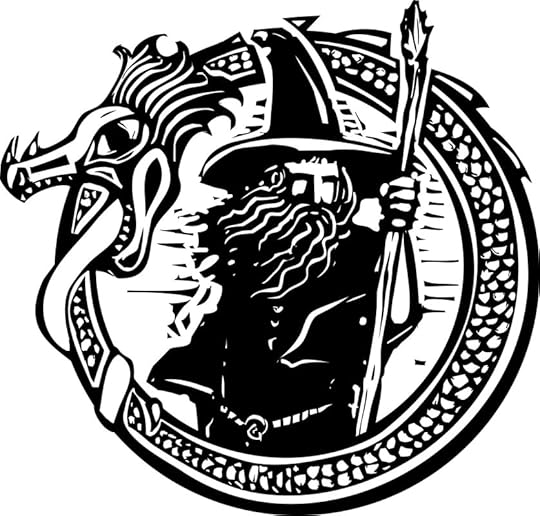Masters of Fantasy and Sci-Fi
 We all have books we loved when we were young. Many of mine were fantasy. I spent night after night as a child, and then a teenager, walking the paths of Middle-earth, riding the Dragons of Pern, or searching with the rabbits for our new home on Watership Down.
We all have books we loved when we were young. Many of mine were fantasy. I spent night after night as a child, and then a teenager, walking the paths of Middle-earth, riding the Dragons of Pern, or searching with the rabbits for our new home on Watership Down.As I got older, I leaned more towards science fiction but I never really left fantasy. I was obsessed with Frank Herbert’s Dune series, with Roger Zelazny, and Ursula K. Le Guin. All these writers sat on the fence, dangling one leg in science fiction, and one leg in the fantasy realm.
Herbert’s Dune books are considered science fiction, but it’s not like the characters are always using or discussing tech. In fact, space travel in Dune is made possible through a drug called spice which makes the navigators prescient. That’s hardly a warp drive. The Bene Gesserit, a class of powerful women in Dune, can bend people to their will with their voices. This is explained in physiological terms, but the power has a paranormal flavor. You can find threads on Reddit discussing whether Dune is science fiction or epic fantasy. I’m sure they’ll roll on forever.
Of course, if you know my books, I have a ready answer. Dune is science fantasy! This is how I categorize The Covalent Series. My male hero, Barakiel, is Covalent, a race of ancient alien beings who hold the cosmos in Balance. The fact that he's an alien pushes the story into science fiction, but his power comes from Balance, the equilibrium of Creation and Destruction, order and entropy, love and hate. Balance belongs more to fantasy, I think. Another major character in the book, Pellus, is a type of Covalent known as a traveler adept. He can manipulate the properties of matter and energy and detect and alter the bonds that give structure to all things. Mostly, Pellus does this using electromagnetism. He would never call it magic, but it’s a mysterious power nonetheless. Again, a blending of science and fantasy. It’s too bad the book retailers don’t cooperate. Science fantasy does not exist as a category.
Unlike Herbert (and myself, if I dare include myself in the same sentence as these writers I love), Zelazny drew a line between his science fiction and his fantasy. The Immortal, for instance, is clearly science fiction, as is my favorite short story of all time, The Keys to December. But Zelazny’s masterwork (in my humble opinion) is The Chronicles of Amber, ten books of some of the most imaginative fantasy you'll ever find.
As for Le Guin, I owe my taste for science fiction to her, as well as to Madeline L’Engle, the author of Wrinkle in Time. While I was still deep in my fantasy obsession, I picked up Le Guin’s A Wizard of Earthsea and went on its magic ride. In a fever, I read the other books in the series, then cast about for more to read by this amazing writer. Like Zelazny, Le Guin wrote in either science fiction or fantasy, without blending the two (much anyway). My search for more of her books turned up the Lathe of Heaven, one of her sci-fi works. It did not disappoint. On I went to The Left Hand of Darkness. The social commentary got me thinking about grown-up things. My love of science fiction was born.
Ursula Le Guin died this year, at the age of 88. I'm grateful she left us with the fruits of her imagination. Thank you, Ms. Le Guin. If you’re curious about her, check out this great article in The New Yorker.
What books inspired you when you were young? I'd love to hear about them. Drop a comment!

Published on September 09, 2018 15:28
No comments have been added yet.



